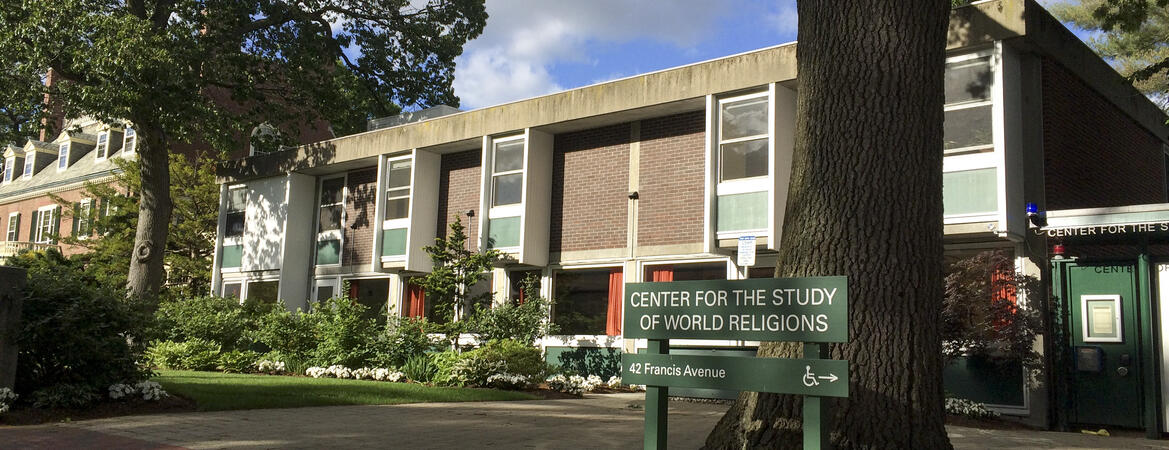Our growing environmental crises has required the expertise of science, policy, law, technology, and economics. Yet religious, spiritual, and ethical perspectives are also needed in the search for effective solutions. Mary Evelyn Tucker and John Grim began to explore these perspectives with a series of conferences on religion and ecology from 1996-1998 at Harvard’s Center for the Study of World Religions. Over 800 scholars and practitioners of the world’s religions participated from around the planet. The Forum on Religion and Ecology was announced at the culminating conference at the United Nations in October 1998. In 2006 the Forum moved from Harvard to Yale with its website and programs. In 2023 the Forum became affiliated with, and a part of, the Yale Center for Environmental Justice.
Twenty-five years ago, Religion and Ecology was neither a field of study nor a force for transformation. Over the past several decades since these seminal conferences, a new field of study has emerged within academia with programs and courses in religion and ecology being taught at colleges, universities, seminaries, and secondary schools around the world. The Yale Forum has been a leader in this new academic field, hosting numerous conferences at Yale and beyond; publishing books and articles; and creating and maintaining this website.
Furthermore, a new force of religious environmentalism has been growing in churches, synagogues, temples, and mosques around the world. Central to this movement is a call for environmental justice for people and the planet. Laudato Si’—the environmental encyclical by Pope Francis—is an important step forward in this effort, urging humans to preserve the planet and encourage equity. Now, every major religion has statements on the importance of ecological protection and ecojustice. From this, thousands of engaged projects have emerged. The Yale Forum with hundreds of partners has played an active role in raising awareness and encouraging these developments to grow and flourish.
Major developments of the last 20+ years:
- Organized a series of 10 conferences at Harvard on world religions and ecology from 1996-1998. Culminating conferences were held from 1999-2001 at the American Academy of Arts and Science in Cambridge, and at the United Nations and the American Museum of Natural History in New York. Ten volumes resulted, which were published by Harvard from 1997-2004.
- Helped to launch the joint master's degree program at Yale between the School of the Environment and the Divinity School; teaching in Yale Divinity School's master's degree in religion and ecology.
- Created a comprehensive website on religion and ecology, designed for research, education, and outreach for those working in the field.
- Prepares a monthly newsletter highlighting publications and events from around the world.
- Supports and serves as Associate Editors for the first journal in the field, Worldviews: Global Religions, Culture, and Ecology
- Publishes books on religion and ecology from Island Press and Routledge and numerous articles.
- Serves as Advisory Board Members for the Ecology and Justice series at Orbis Books
- Edited the 2001 Daedalus journal from the American Academy of Arts & Sciences, which was the first volume on religion and climate change.
- Highlights various conferences, symposia, and lectures.
- Organized panels on religion and ecology for the Parliament of the World's Religions (Chicago 1993, Capetown 1999, Barcelona 2005, Melbourne 2009; Salt Lake City 2015; Toronto 2018, Chicago 2023)
- Produced an Emmy-award winning film, Journey of the Universe, that is the first visual telling of the universe story. This documentary is accompanied by a book from Yale University Press and a series of 20 conversations available in film and podcast. Journey aired on PBS stations across the United States for three years and is available for streaming from Amazon Prime.
- Created two series of MOOCs (Massive Open Online Courses) for Yale/Coursera: “Journey of the Universe: A Story for Our Times” and “Religions and Ecology: Restoring the Earth Community.”
- Built a website on the life and work of Thomas Berry and an archive for his papers at Harvard. Published 5 collections of Berry's essays and the first biography of Berry.
Header photo: Center for the Study of World Religions at Harvard ©Kristie Welsh, Harvard Divinity School, courtesy of CSWR

